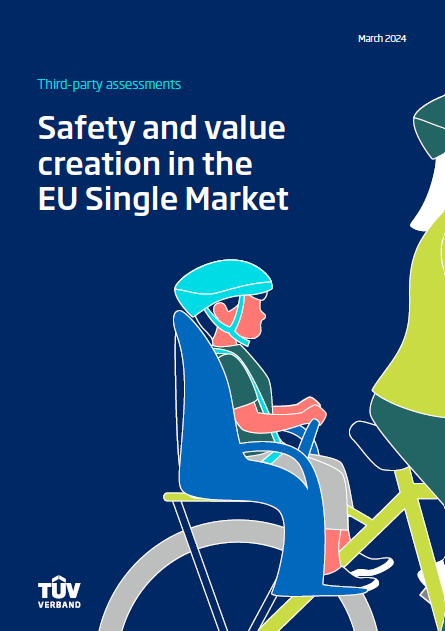FAQ: Third-party assessments

 Why are independent third-party assessments necessary? How much do they cost and how do they take? Do assessment organisations like the TÜV have sufficient capacities to meet the current and future market demand for independent assessments? Plus: Who checks the independent assessment organizations? There are a few questions we are asked time and again. You can now find the most frequently asked questions and answers in our FAQ on independent third-party assessments.
Why are independent third-party assessments necessary? How much do they cost and how do they take? Do assessment organisations like the TÜV have sufficient capacities to meet the current and future market demand for independent assessments? Plus: Who checks the independent assessment organizations? There are a few questions we are asked time and again. You can now find the most frequently asked questions and answers in our FAQ on independent third-party assessments.
As service providers with a comprehensive service portfolio the TÜV organisations are strong partners for a sustainable future
that meets the requirements of both people and the environment. With their services, the TÜV organisations are driving the market ramp-up of new technologies such as green hydrogen and sustainable batteries, ensuring their safety and trust in them, and thus contributing decisively to the acceptance of the green transition. With their independent services, the TÜV organisations contribute decisively to ensuring that the legal requirements are met at all times. The economy, society and environment are thus reliably protected from threats and damage. Independent conformity assessments are consequently a core component of modern regulatory policy.
FAQ "Third-party assessments: Safety and value creation in the EU single MArket“
Why independent third-party assessments?
Independent Third-party Assessments...
...provide safety and trust.
 Assessment organisations are neutral and independent. They are not involved in the development or use of products.
Assessment organisations are neutral and independent. They are not involved in the development or use of products.- Independent assessments ensure that all requirements are actually met and products are compliant – and therefore safe.
- Fewer non-compliant products mean less damage to people, property and the environment. The economy and society are reliably protected as
a consequence.
...Promote Innovation.
 For innovations to be accepted, it must be possible to trust in their safety. All economic players can trust the products.
For innovations to be accepted, it must be possible to trust in their safety. All economic players can trust the products.- Independent assessments already identify shortcomings during product development, so help to reduce the time to market.
- They also lead to higher product quality and thus reinforce manufacturers’ brand reputation.
...Are cost efficient.
 Conformity assessments always involve costs, regardless of whether they are carried out by a manufacturer or an independent assessment organisation.
Conformity assessments always involve costs, regardless of whether they are carried out by a manufacturer or an independent assessment organisation.- According to figures from the European Commission, certification is estimated to only make up between 0.05% and 5% of the total product development costs.
- Manufacturers benefit in several ways: no in-house testing infrastructure required, fewer information asymmetries in supply chains, enhanced brand reputation.
...reduce bureaucracy and the state burden.
 Assessment organisations assume tasks that the state would have to perform itself otherwise through its authorities to fulfil its duty of protection.
Assessment organisations assume tasks that the state would have to perform itself otherwise through its authorities to fulfil its duty of protection.- As service providers for industry, assessment organisations work quickly and unbureaucratically – and that worldwide.
- Ex-ante assessments identify unsafe products before they are placed on the market. This relieves the burden on market surveillance authorities.
...Facilitate International Market access.
 Assessment organisations are familiar with the regulatory requirements of third countries and can support manufacturers in their export business accordingly.
Assessment organisations are familiar with the regulatory requirements of third countries and can support manufacturers in their export business accordingly.- Products can be assessed according to the requirements of both the home and
target markets from a single source. This enables rapid market access. - Certifications from independent bodies boost trust in the conformity of products among trade partners and consumers.
Do you have any questions?
![Johannes Kröhnert [Translate to Englisch:]](/fileadmin/_processed_/1/7/csm_TUEV-Verband_Johannes_Kroehnert__C__Tobias_Koch__1__1500px_613ddd3a47.jpg)
